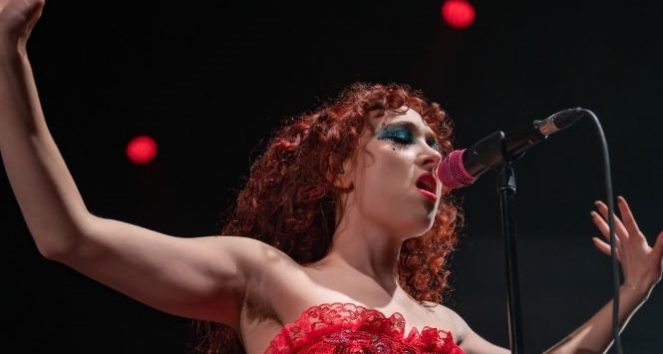December 11, 2024:

December 11, 2024
By now, you’ve likely heard of Chappell. Chappell Roan, that is. An American singer and songwriter whose popularity has skyrocketed as a result of her song “Good Luck, Babe!” going viral, she’s become a superstar.
I first heard “Good Luck, Babe!” in the background of an Instagram post, but people had been praising Roan’s music to me even prior to that. I finally listened to her most recent album, “The Rise and Fall of a Midwest Princess,” and to say the least, the hype was well-founded. Not only are the melodies catchy, but her lyrics tell a story—of oppression, difficult romantic endeavors, finding yourself, living out your dreams and much more. This is why Roan’s music has resonated with me and why I think it’s resonated with teens across the world.
Plus, Roan is overt about her identity as lesbian, which helps inspire LGBTQ+ teens who may find comfort in and relate to her music. Her honesty and storytelling is what makes her such an impactful representative for LGBTQ+ people.
In light of the recent U.S. presidential election, visibility and advocacy for LGBTQ+ young people are essential to our social progress as a country. Music like Roan’s provides an outlet for us to feel seen, heard and understood. When LGBTQ+ teens have public figures to look up to, we can feel inspired to speak out about our experiences and advocate for ourselves. It also establishes a way for cishet (cisgender and heterosexual) people to grasp some of what it’s like to be LGBTQ+ and maybe even relate to the emotions shown in the music and lyrics.
For example, “Good Luck, Babe!” is about being romantically involved with someone who is afraid to be true to themselves about their sexual orientation. It’s also about compulsory heterosexuality, which refers to the idea that heterosexuality is assumed and enforced upon people as the norm, whether or not people fit that identity. These ideas are prevalent and can affect teens deeply, as we figure out who we are and what we want.
To me, “Good Luck, Babe!” is not hateful. The song feels sad and wistful over a lost romance, and maybe even angry, but not at the person who’s afraid to come out. Roan is instead expressing her anger at societal pressures to be heterosexual, while, at the same time, saying that you need to know your worth in any relationship.
“Good Luck, Babe!” is not the only song of Roan’s that discusses such relatable and important topics (for LGBTQ+ folks and beyond). Her album “The Rise and Fall of a Midwest Princess” explores concepts from learning to be proud of who you are despite what others think of you (“Pink Pony Club”) to the experience of falling in love with a person when they just want a casual relationship (“Casual”).
LGBTQ+ representation in media like pop music is crucial to informing and helping people be more accepting. Chappell Roan’s contributions have been immeasurable. Authentic lesbian and WLW (“Women who Love Women,” an umbrella phrase that describes people who identify as women who experience romantic and/or sexual attraction to other women) representation is particularly important due to ongoing sexism and misogyny. Lesbians are often portrayed in stereotypical, objectifying ways in music and film, among other media; having music like Roan’s helps counteract that.
Check out Chappell Roan’s music on all streaming platforms, and continue to support LGBTQ+ artists!
*Photo by Justin Higuchi, CC BY 2.0